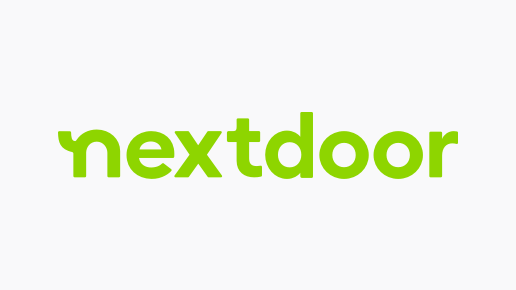Take a cue from Nextdoor: build a hyperlocal freelance business to revolutionise your revenues
If you already use the hyperlocal social media platform Nextdoor, you’ll understand the value of connecting with neighbours and locals. From rating local businesses, exchanging goods and services to finding a lost pet you are benefiting from the power of a connected community. What you may be surprised to learn is that this “little local app” is listing on Nasdaq with a valuation of $4.3bn.
The Freelance Informer takes a cue from this app’s hyperlocal approach to inspire you to build a “neighbourly” freelance business or network of contractors.

Nextdoor by the numbers
- 11 countries
- 275,000 neighbourhoods globally
- 50 million business recommendations from neighbours
Set up in 2011, the social network Nextdoor has carved a niche that is distinct from its dominant rival Facebook which has since launched ‘Neighborhoods’. It took Nextdoor’s founders including Nirav Tolia a decade to build up local trust before introducing the app to different countries. However, the pandemic and subsequent lockdowns across the globe over the past year have ignited the value of neighbourly advice and support more than ever.
“Right now, people are looking no further than their neighbours and local community for their everyday essentials,” said Nextdoor Business. “They’re asking for local recommendations for goods and services such as homeschooling solutions or food deliveries. They’re also coming together to form local bonds based on common interests and hobbies.”
Daily active users rose 50 per cent in 2020, and Nextdoor is present in nearly one in three households in the US. More than 27m people logged into the service every week during the first quarter of 2021, according to an investor presentation.
Does your freelance business provide a neighbourly service?
If your freelance business can market itself as a major problem solver or even a go-to business to provide the odd helping hand, then you just might have a platform of neighbourly service that you can build upon. Here’s a real-life example of how building a support network united a community. Could you do the same for your freelance business?
 The Best Street of Neighbours Award – Flamstone Street in Wiltshire
The Best Street of Neighbours Award – Flamstone Street in Wiltshire
Hester Kirkham nominated her entire street for Nextdoor’s Best Street of Neighbours Award last year. Hester’s neighbours provided her with a lifeline following the death of her husband just before the outbreak of coronavirus.
“During lockdown, being elderly and in the vulnerable category, her neighbours rallied around to help her with food and prescription drop-offs,” Nextdoor recalls the story. “Hester’s children and family all live in the USA, so since her husband died, her support network during lockdown was largely based around her neighbours. To repay the favour, Hester regularly buys everyone on her street a Sunday roast which they eat together at the end of their driveways, observing social distancing.”
 The Best Neighbourhood Business Award – Kay and Gary Deare, Glampton Village, Devon
The Best Neighbourhood Business Award – Kay and Gary Deare, Glampton Village, Devon
Another example of neighbourly service from Nextdoor users are Kay and Gary, who run the local village shop in Glampton in Devon. The word convenience has gone to another level for the store and its community.
“During the difficult times of the COVID-19 lockdown, it’s been the rock of the community,” according to a Nextdoor account. “With a deeply loyal customer base, the business owners wanted to ensure that everyone in the village would receive their essential supplies, as members of their rural community were struggling to access daily necessities. They started out doing eight deliveries a week but it quickly turned into 80, covering the village and beyond.”
Can you make your services more convenient?
Convenience has proven priceless in the pandemic. But it can also prove as a price incentive for you as a freelancer or contractor. For example, a freelance writer could offer their SEO services with each article they write. They could also set up a content strategy for a client based on their SEO research of topics that could drive traffic to a client’s site and match their area of expertise.
Adding these extras as part of your service is one less thing your client has to think about. If it proves time-consuming (which you should find out before you offer it), then factor this into a new article or campaign rate, but keep it cost-sensitive, too.
If you were an IT network specialist, say, how could you stick out from other candidates? What services or in-house training could you provide your client’s staff that would turn into a valuable recommendation to your client’s clients? For your website or LinkedIn profile? What if you could replicate your style of service by collaborating with fellow freelancers or outside IR35 project contractors and build your network and future clients that way?
How to build a neighbourly freelancer network

If you want to break away from inside IR35 contracts, building a network of freelancers or contractors can help make that happen, as previously reported by The Freelance Informer. When there is more than one of you, it means you can reach more customers every day and that means more revenues and time for yourself.
For example, if you were to set up a business by promoting a group of freelance handymen or garden landscapers (think fiverr on a very small local scale), you could create a base rate or percentage for each job that would go back into the business to pay for expenses. These expenses could include insurance, freelance bookkeeping or virtual assistant services to handle a range of duties while you ad the other freelancers are working (e.g., quotes, invoicing, marketing, customer service, accountancy, etc.). The rest of the fees, including your finder’s fee, could be factored in for set day rates or hourly rates based on the type of job or skill. Individual tax matters would have to be looked into for each freelancer, which their accountant or a content guide on your site could provide in part along with advice on share ownership, expenses, etc. that is if you want a co-founder model.
Services that can be provided remotely on a national or even international network scale can mean an even wider net of freelancers coming together. A great example of this is Hoxby, which has built its network of freelancers or ‘Hoxbies’ across the globe. Check out our article about their inspiring story here.
Want to build a network of freelancers to spread your workload, but not sure how to approach working with other freelancers? Maybe you need a co-founder instead?
There is research to back up the case that both solo-founders and teams are more likely to succeed.
- The Octopus Group discovered that 87% of entrepreneurs with cofounded businesses claim that having a cofounder has made their business more successful.
- The same study showed 76% of established solo founders believe that a cofounder would have made their business more successful.
- The Startup Genome Report found Solo founders take 3.6 times longer to scale when compared to teams.
Check out this article on how to find the right co-founder from Freelance Informer‘s community partner, Othership.



 If you liked this article, please share it via social media
If you liked this article, please share it via social media 


 news,
news,  views and
views and  insights to
insights to  strengthen your freelance career by signing up for our newsletter
strengthen your freelance career by signing up for our newsletter Freelancer’s Lunch: should contractors ditch the CV and try something new?
Freelancer’s Lunch: should contractors ditch the CV and try something new?